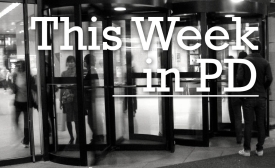brazil
Brazil, because of its largely peaceful history and its geostrategic isolation, has relied far more on soft power (the power of attraction) than on hard power (the power to compel) to advance its global interests. Because of this, Brazil will not be able (nor shows any desire) to compel the incumbent powers to accept the changes it wants in the present international order.


PD experts forecast what's on the horizon.
Israel seems to be backing off an effort to appoint settler-advocate Dani Dayan as ambassador to Brazil. Israel’s Prime Minister Benjamin Netanyahu publicly announced that he was naming Dayan—who has “devoted” much of his life to “expanding the Jewish presence in…disputed historic places across the West Bank”—in a Tweet in early August.

PD News headlines looked back on the diplomatic fails and breakthroughs of 2016 thus far.
The Brazilian foreign policy establishment rightly sees relations with emerging countries, so-called South–South diplomacy, as one of the pillars of Brazil’s global strategy. However, the crisis has reduced the country’s soft power and economic tools to attract these nations.
Mark Bromilow says he needs a strong nerve as he sets about building a cultural bridge between Australia and Brazil. [...] Ahead of next year's Olympic Games in Rio de Janeiro, Australia has targeted Brazil for the major cultural festival aimed at promoting links and collaboration between the two largest nations and economies in the southern hemisphere.
Russia and China in particular have been making efforts to develop their global media reach in recent years, frequently with investments in English-language media, but this is a new step; the BRICS as a group now see the promotion of their perspectives as a crucial element of their public diplomacy and development of soft power — and they see it as a joint venture.







